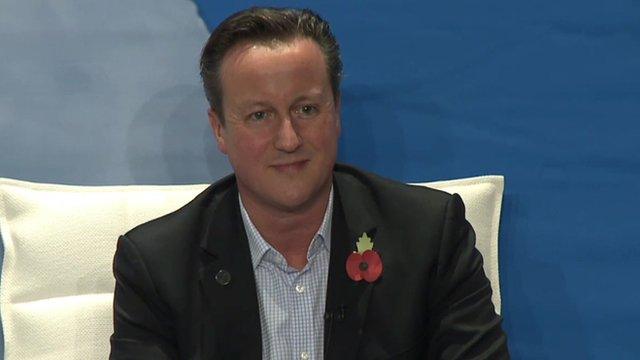Osborne's EU budget claim challenged
- Published
"Instead of footing the bill we have halved the bill", Chancellor George Osborne said
George Osborne's claim to have halved the UK's £1.7bn EU budget surcharge has been challenged by his EU counterparts.
The UK will pay two interest-free sums next year totalling £850m, instead of a larger lump sum by 1 December, after a rebate from Brussels due in 2016 appeared to have been brought forward.
Mr Osborne argued the deal reached on Friday was a "real result for Britain".
But the Dutch finance minister said the UK would not get a "discount" while Labour said it was "smoke and mirrors".
Shadow chancellor Ed Balls accused Mr Osborne of "spin" and said it was "a diplomatic disaster for the government".
The BBC's political editor Nick Robinson said Mr Osborne's assertions would be carefully scrutinised amid claims by opponents and analysts that they did not add up.
UK bill revised by EU
£850m
to pay in 2015.
50%
less than original request for £1.7bn.
-
Instalments: 2
-
Interest to pay: 0%
-
UK was already due rebate of: £785m
Instalments
The surcharge follows an annual review of the economic performance of EU member states since 1995, which showed Britain had done better than previously thought.
The demand sparked anger across the political spectrum, with Prime Minister David Cameron insisting the UK would pay nothing by the original 1 December deadline and calling for the overall sum to be re-negotiated.
After a four-hour meeting of EU finance ministers in Brussels, Mr Osborne hailed an agreement which he said meant the UK would pay a lower sum in two interest-free instalments in July and September 2015.

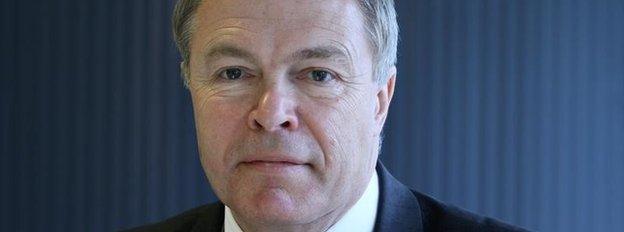
Analysis by BBC's Europe Editor Gavin Hewitt
How has the UK reached this figure of £850m?
It has included the figure of the UK rebate which is calculated on the gross national income figures.
The Treasury argues that it was not at all clear that the rebate would have been applied in full and they gained that assurance after intensive discussions with the Commission.
Others argue that the UK rebate for next year was never in doubt and that a rebate which the UK would have got anyway is, in effect, being used to reduce this surcharge payment.
It is the case that these figures were never discussed at the finance ministers' meeting today so the announcement that the UK bill has been halved has been met with some surprise.

He said: "Instead of footing the bill, we have halved the bill, we have delayed the bill, we will pay no interest on the bill, and if there are mistakes in the bill we will get our money back.
"We have also changed permanently the rules of the European Union so this never happens again.
"This is far beyond what anyone expected us to achieve and it's a result for Britain."
Rebate
Asked how this had been achieved, Mr Osborne said the UK's annual rebate from Brussels would be applied in full next year to partially offset the surcharge.
The UK rebate is a system dating back to 1984, negotiated by Margaret Thatcher, that provides the UK with a refund on a part of its contribution to the EU budget. It is calculated on the basis of changes in national income.
"This is smokes and mirrors", says shadow chancellor Ed Balls
Under the initial plan, the UK was due to get a 1bn-euro rebate in 2015-16 but it will be allowed to bring that forward to the second half of 2015 to reduce the surcharge.
It is thought the 2016 rebate will be smaller as a result, but it is not clear by how much.
'No discount'
Prime Minister David Cameron said reducing the amount paid to Brussels had been "far from inevitable".
"This is good progress, and the chancellor has done well," he added.
But other foreign ministers questioned whether the UK's contribution had changed.
Ireland's Finance Minister Michael Noonan said the UK would "pay the full amount", and Hans Joerg Schelling, from Austria, said "the amount cannot be put in question".
Dutch finance minister Jeroen Dijsselbloem added: "The UK has ... a rebate, which they have had for a very long time and of course this mechanism of rebate will also apply on the new contribution.
"So it's not as if the British have been given a discount today."
'Worse off'
And Eurosceptic Tory MEP Daniel Hannan suggested the deal achieved by the chancellor may not represent any reduction in the total amount.
He said: "The EU sticks us with a bill. Ministers double it, apply the rebate, return to the original figure and claim victory. We're meant to cheer?
"Britain is worse off in absolute terms, but a straw man has been knocked down."
Writing on Twitter, external, UKIP leader Nigel Farage said Mr Osborne was "trying to spin his way out of disaster", saying the UK was still going to pay the full £1.7bn.
And Labour accused Mr Osborne of "smoke and mirrors".
Mr Balls said: "By counting the rebate Britain was due anyway, they are desperately trying to claim that the backdated bill for £1.7bn has somehow been halved.
"But nobody will fall for this smoke and mirrors. The rebate was never in doubt and in fact was confirmed by the EU Budget Commissioner last month."
- Published7 November 2014
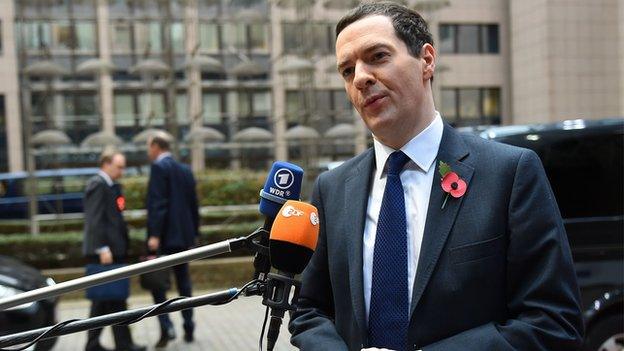
- Published7 November 2014
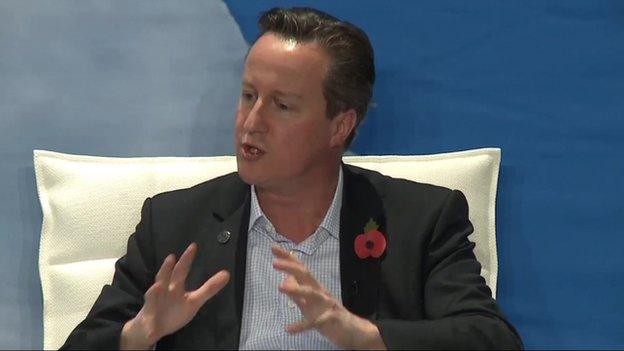
- Published7 November 2014
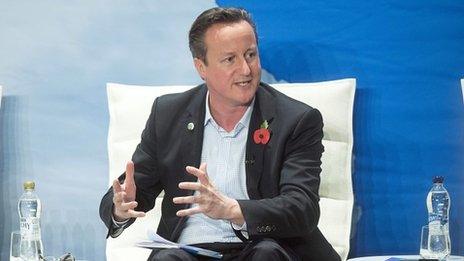
- Published7 November 2014
